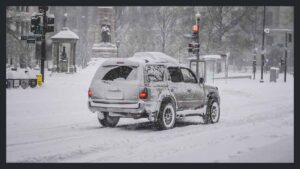
Best Types of Car Differentials for Snow and Ice
All cars are equipped with a mechanical device called a differential. The primary function of a differential is to allow the wheels to turn at different speeds.
Before the invention of the automobile, the only mobile vehicles were wagons, carriages, carts, and chariots. They didn’t have electric engines, but they still had differentials to allow the wheels to turn at different speeds.
Now, why is this important? Differentials are important when cornering or going around a curve. If all of the wheels on your car spin at the same speed when turning a corner, it will cause severe dragging and skidding.
This situation is even worse when turning on snowy or icy roads. Damage to the wheels and axles can occur.
Differentials are the solution to this problem. Wherever there are driven wheels there is a differential installed. Front-wheel drive vehicles have a front differential and rear-wheel drive vehicles have a rear differential.
Best Differentials for Snow and Ice
Which type of differential is best for snow and ice? See the comparison below.
Open Differential vs. Limited Slip Differential
Not all differentials are the same. There are at least four different types of differentials that are suitable for different driving conditions. A typical car has an open differential, which allows the wheels to keep turning even if one wheel is spinning.
Essentially, the inside wheels turn slower than the outside wheels. This is suitable for normal road conditions without rain, gravel, ice, or snow. People who live in tropical climates benefit most from an open differential. Limited-slip differentials are also good for open road conditions. They are like open differentials because engine torque is still transferred to each wheel. The big difference, however, is with regards to tire rotation.
When making tight turns or accelerating aggressively, an open differential would normally cause the tires to spin. However, a limited-slip differential reduces the torque transferred to the spinning tires. When this happens, it becomes easier to make sharp turns quickly. In this situation, open differentials have problems.
High-performance vehicles like race cars usually have limited-slip differentials because they take fast corners on open tracks.
On the open road, police vehicles may be equipped with limited-slip differentials to make it easier to pursue suspects around curves. However, on roads with snow or ice, a limited-slip differential is not better than an open differential.
Limited-slip differential vs. torque-vectoring differential
Snow and ice create bumpy roads. You may be able to get away with a limited-slip differential on slightly snowy or icy roads, but in difficult conditions, you may need a limited-slip differential.
The main problem when driving on snowy or icy roads is that traction is difficult. It is easy for your tires to lose grip when trying to drive on roads covered with ice or snow. To overcome these road imperfections, your wheels need to have the best traction possible.
Limited-slip differentials use springs and clutches to ensure equal torque to all wheels, resulting in a solid axle. No wheel has less traction than another. As long as you don’t go too fast, you can still maneuver over difficult terrain or bumpy roads.
Torque-vectoring differentials are the most sophisticated type of differential. These contain several electronic sensors that get information about the vehicle and the surrounding conditions, such as: B. steering system, throttle position, and road surface. Based on the information received, the differential controls the electronic controller and clutch.
They are also good for slippery conditions, but most people don’t have them in their cars because they are rare and expensive. After all, limited slip differentials are the best type of differential for snow and ice.

